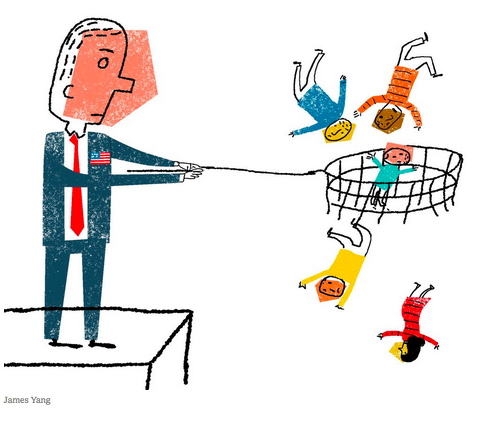When Kam Tam came to the United States at age 16 from China 50 years ago, he spoke little English, had a mouthful of rotten teeth and active tuberculosis, and weighed just 96 pounds. Through perseverance and a little help, he got his health back in order. The providers at his publicly funded community health center in San Francisco pulled four molars and cured his tuberculosis.
It was the character instilled by his parents that got him through college and pharmacy school, Dr. Tam said. Today, he is a successful businessman and pharmacist who has repaid society for the support he and his family received. He continues to generously give back by donating his professional services and financial resources to vulnerable families in Oakland.
Yet under a rule proposed last week by the Department of Homeland Security, legal immigrants could lose their chance to become a success story like Dr. Tam because they used government benefits they were entitled to. The Trump administration wants lawful permanent residence, also known as green-card status, to be denied to greater numbers of legal immigrants for having received public assistance.
A more narrow version of this rule has been in place for years. Currently, immigrants can be refused green cards if they are deemed to rely on government cash assistance for more than half their income. But the Trump administration has proposed expanding the scope of the rule to potentially deny green cards to immigrants who have used any of a much wider range of non-cash public benefits.




